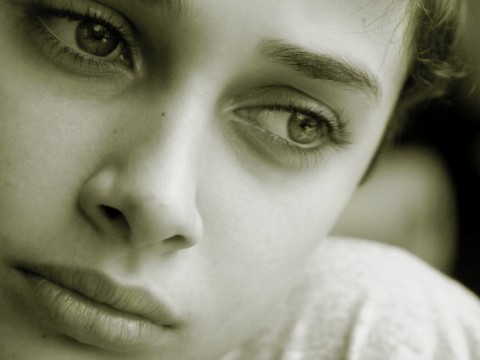While many women are aware of postpartum depression, little is often said about depression during pregnancy. Some women might think the fatigue, mood changes, or changes in appetite they have during pregnancy are normal symptoms. In reality, those signs could be a signal that the woman is suffering from depression.
What are the symptoms of depression during pregnancy?
Crystal Clancy is a specialist in perinatal mental health who often works with women suffering from depression or other mental health disorders during pregnancy. She says that some of the most common symptoms of depression during pregnancy include:

- Feeling sad, overwhelmed or hopeless
- Fatigue
- Not sleeping well or sleeping too much
- Appetite changes (particular cravings or food doesn’t sound appetizing at all)
- Isolating yourself from others
- Not finding fun or enjoyment in anything
“Sometimes there are thoughts of suicide, or death, or even of just wanting to run away””called ‘escapist fantasies.'” Clancy says.
Is it just the pregnancy or is it really depression?
Some women have a difficult time deciding if they are actually suffering from depression or if their symptoms are normal. Clancy notes that it is important to look at the duration the woman has been experiencing symptoms. She says: “If symptoms are lasting longer than two weeks or increasing even before that, we start to look at the possibility of a depressive episode.”
What are the recommended treatment options for depression during pregnancy?
A study published in 2009 noted that only 18 percent of women who have major depressive disorders during pregnancy seek treatment. Some women might not realize the condition is serious, while others might not want to let anyone know they are having feelings of depression. It can be difficult for a woman to admit she is feeling depressed during a time when she feels she should be the happiest.
“Cognitive-behavioral therapy is really good and addresses the sad, negative thought processes that most women are experiencing when depressed,” Clancy says. “Another important part of treatment is self-care”” good old eating, sleeping and exercise.”
Is it safe to take antidepressant medication during pregnancy?
One study has shown that it isn’t always easy to determine if taking antidepressant medication during pregnancy is the correct choice. The study noted that women who took SSRI’s during pregnancy had increased chances of having a baby with delayed head growth and preterm birth. The study also showed that pregnant women with untreated depression had similar risks, as they also have an increased chance of having a baby born with delayed head growth.
Clancy notes that when it comes medication, weigh the risks against the benefits. If a woman is depressed and not taking care of herself or her baby, would it be more harmful for her to continue as she is, or take a medication that could help her find balance? She says it is important for women to find a practitioner who has an understanding of safe medications and treatment for depression during pregnancy.
Should women continue to receive treatment for depression after the baby is born?
Clancy says it a great idea for women to continue receiving treatment after the baby is born.